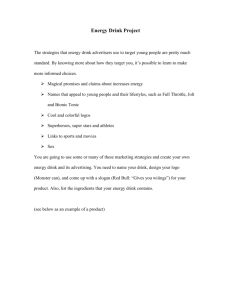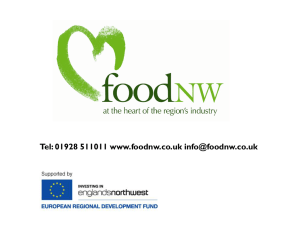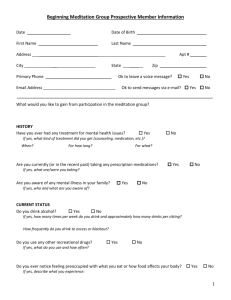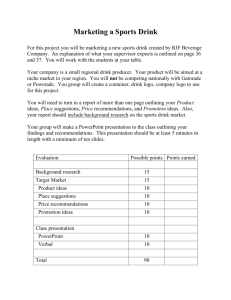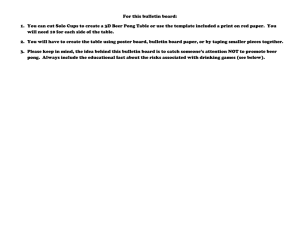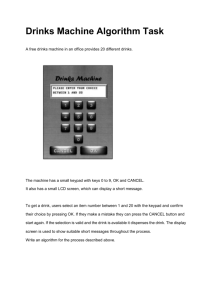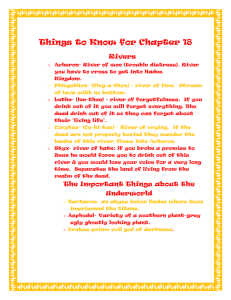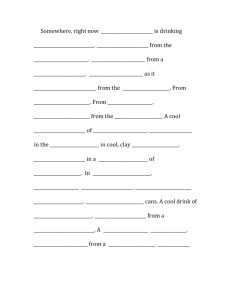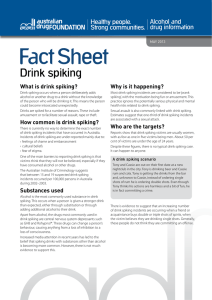BINGE DRINKING & DRINK SPIKING
advertisement
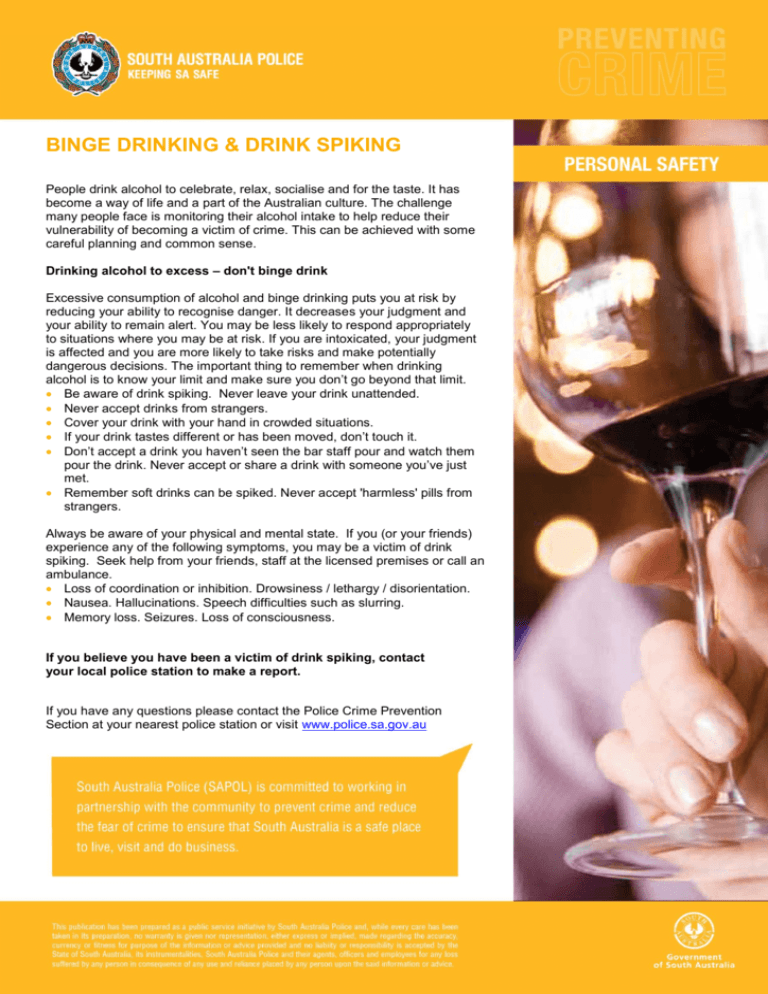
BINGE DRINKING & DRINK SPIKING People drink alcohol to celebrate, relax, socialise and for the taste. It has become a way of life and a part of the Australian culture. The challenge many people face is monitoring their alcohol intake to help reduce their vulnerability of becoming a victim of crime. This can be achieved with some careful planning and common sense. Drinking alcohol to excess – don't binge drink Excessive consumption of alcohol and binge drinking puts you at risk by reducing your ability to recognise danger. It decreases your judgment and your ability to remain alert. You may be less likely to respond appropriately to situations where you may be at risk. If you are intoxicated, your judgment is affected and you are more likely to take risks and make potentially dangerous decisions. The important thing to remember when drinking alcohol is to know your limit and make sure you don’t go beyond that limit. Be aware of drink spiking. Never leave your drink unattended. Never accept drinks from strangers. Cover your drink with your hand in crowded situations. If your drink tastes different or has been moved, don’t touch it. Don’t accept a drink you haven’t seen the bar staff pour and watch them pour the drink. Never accept or share a drink with someone you’ve just met. Remember soft drinks can be spiked. Never accept 'harmless' pills from strangers. Always be aware of your physical and mental state. If you (or your friends) experience any of the following symptoms, you may be a victim of drink spiking. Seek help from your friends, staff at the licensed premises or call an ambulance. Loss of coordination or inhibition. Drowsiness / lethargy / disorientation. Nausea. Hallucinations. Speech difficulties such as slurring. Memory loss. Seizures. Loss of consciousness. If you believe you have been a victim of drink spiking, contact your local police station to make a report. If you have any questions please contact the Police Crime Prevention Section at your nearest police station or visit www.police.sa.gov.au
